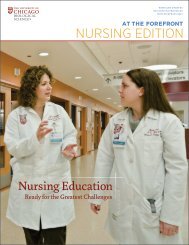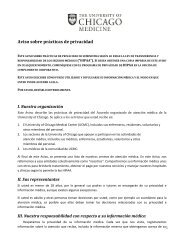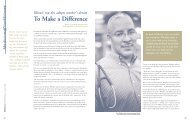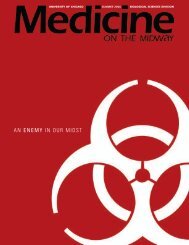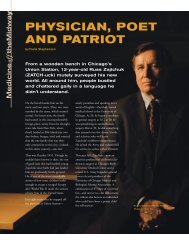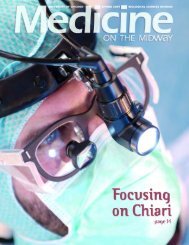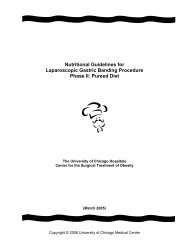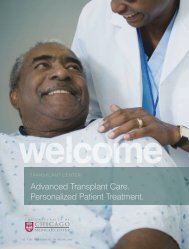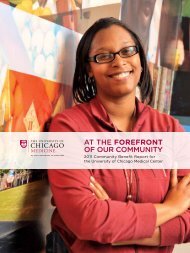The ultimate goals of the laboratory are to identify new genes that interact with BCL6 and to gain a better understanding ofthe role of PDCD2 in lymphoma pathogenesis. Specific research aims are to 1) identify the genes that cooperate with BCL6 inthe biological events that lead to lymphoma development; and 2) study the programmed cell death-2 (PDCD2) gene, which thelaboratory previously identified as a target of BCL6.BCL6 may promote lymphoma development, at least in part, by interfering with normal cellular apoptosis events throughrepression of PDCD2. The laboratory recently showed that the BCL6 protein binds to the PDCD2 promoter both in vitro and invivo, that BCL6 can repress transcription from the PDCD2 promoter, and demonstrated the anticipated inverse relationship inthe expression patterns of BCL6 and PDCD2 in mouse lymphoid tissues as well as in human B- and T-cell lymphomas. Further,with the use of small interfering RNA duplexes, the Baron group was able to show that knockdown of the BCL6 protein in alymphoma cell line leads to increased PDCD2 protein expression. These studies will likely provide further insight into thisimportant human disease and support the development of new molecular tools for the treatment of lymphoma.Theme: Experimental TherapeuticsToyosi Odenike, MDAssistant Professor of MedicineThe long term goal of Dr. Odenike’s research is to translateour understanding of the molecular-genetic pathways involvedin malignant hematologic diseases into meaningful, moreefficacious and less toxic therapeutic interventions. Animmediate focus of this effort is the clinical and translationaldevelopment of novel agents that target epigenetic changes inmyeloid malignancies. Recruitment of histone deacetylases andDr. Kenan Onel with a pediatric patientDNA hypermethylation are two pathways of epigenetic silencingwhich have been linked and implicated in the transcriptionaldysregulation underlying a variety of myeloid neoplasia. Unlike gene deletions which are irreversible, epigenetic changes canpotentially be reversed by chromatin remodeling agents such as histone deacetylase and DNA methyltransferase inhibitors,restoring tumor cells to a more transcriptionally normal state. A number of ongoing and recently-completed projects are basedon the hypothesis that chromatin remodeling agents are active in a wide spectrum of myeloid neoplasms, and that the activity ofthese agents is mediated by epigenetic modulation of gene expression.Specific aims of Dr. Odenike’s research are to 1) determine the clinical and biologic relevance of histone deacetylase (HDAC)inhibition in AML; 2) determine the clinical and biologic relevance of DNA methyltransferase (DNMT) inhibition in chronicmyeloproliferative neoplasms; 3.) investigate the effects of these agents on modulation of gene expression; and 4) optimize theactivity of these agents in myeloid neoplasms by developing rationally-designed combinations.The Odenike team has investigated the HDAC inhibitor, depsipeptide, in a multi-center NCI sponsored trial conducted throughthe University of Chicago Phase II Consortium in relapsed and refractory AML. This trial has, for the first time, demonstratedthat depsipeptide has selective antileukemic activity in patients with Core Binding Factor (CBF) leukemias, a cytogenetic subsetof AML where recruitment of histone deacetylases is an established mechanism of leukemogenesis. In addition, specific targetgenes, such as CDKN2A, CDKN2B, and MDR1, were significantly upregulated in the subset of patients with CBF leukemias aspreviously hypothesized. This has served as an important “proof of principle” for the mechanism of action of HDAC inhibitorsin AML and provides a potential rationale for the clinical investigation of these compounds in combination with other agentsin AML. In addition, the Odenike team demonstrated in a multi-center NCI sponsored trial conducted through the Universityof Chicago Phase II Consortium that the DNMT inhibitor, decitabine, has clinical activity in myelofibrosis, a disease for whichthere is no standard therapy.34UCCRC SCIENTIFIC REPORT 2009
Currently, combined DNMT and HDAC inhibition is being investigated in myeloid neoplasms in the context of an ongoingPhase I trial, given the synergy that has been observed in vitro between these 2 pathways of epigenetic silencing. Future workwill focus on investigating combinations, involving agents that target aberrant transcription (such as chromatin remodelingagents) with those that inhibit dysregulated signaling pathways, in an effort to optimize the clinical and biologic effects ofthese agents in myeloid neoplasia.Sonali Smith, MDAssociate Professor of MedicineA major challenge in developing a research agenda for Hodgkin and non-Hodgkin lymphomas is the current recognitionof nearly 60 unique clinicopathologic subtypes. Many of the subtypes are in fact rare diseases with fewer than 5000 newcases per year throughout the country. The Lymphoma Program at The University of Chicago is a highly visible clinical andtranslational research program that has been in a period of substantial growth since 2001 and currently consists of fourfaculty members, including Drs. Koen van Besien, Sonali Smith, Kenneth Cohen, and Justin Kline. Dr. Smith, the associatedirector of the program, is institutional Principal Investigator on 10 clinical trials and hosts the annual International ChicagoLymphoma Symposium, the only lymphoma-dedicated symposium in the Midwest.Molecular Genetics& HematopoiesisThe Lymphoma Program at The University of Chicago has adopted a two-pronged approach in an effort to serve thevariety of patients seen in the clinic. The first is to provide opportunities for patients to participate in a range of clinicaltrials that are either subtype specific or that target a common oncogenic pathway believed to promote lymphomagenesis.Large scale front-line studies, intended for patients that are treatment-naïve, are primarily via collaborations forged withCALGB. Through the CALGB, Dr. Smith has published several reports, including a relatively widely quoted negative studyof thalidomide in patients with relapsed indolent lymphomas, which contrasts with the significant activity of secondgeneration immunomodulatory agents derived from thalidomide. The second programmatic approach is to focus onnew drug development for relapsed lymphomas through The University of Chicago Phase II Consortium. In this venue,investigator-initiated trials free of pharmaceutical bias are offered to patients with relapsed disease without other standardtreatment options. The University of Chicago, through this phase II mechanism, was the first to show activity of a classof agents called mTOR inhibitors against two of the most common types of lymphomas (diffuse large B-cell lymphomaand follicular lymphoma). mTOR, or mammalian target of rapamycin, is a ser/thr kinase that controls the start of mRNAtranslation. Several known oncogenic pathways converge upon mTOR, making it an attractive target to modulate upstreamsignals simultaneously. Furthermore, mTOR controls translation of several mRNA transcripts that are critical componentsof lymphomagenesis, including CCND1, VEGF, and MYC. Two subsequent proposals are being explored to examine mTORinhibition, in combination with other biologic agents, as well as with standard cytotoxic chemotherapy. In addition, theProgram seeks to identify predictive markers for response to mTOR inhibitors.The other major focus of the Lymphoma Program is to explore the role of both autologous and allogeneic hematopoietic stemcell transplantation for patients with relapsed lymphomas. High dose chemotherapy followed by autologous stem cell rescue(ASCT) can successfully salvage many patients with chemosensitive relapsed aggressive lymphomas, but relapse remains acommon and usually fatal event. The Program recently completed a trial evaluating the safety and efficacy of post-transplantimmunomodulation using GM-CSF and IL-2 to augment rituximab, with the goal of eradicating minimal/undetectableresidual disease following high dose chemotherapy to reduce relapse. Two ongoing studies are extending interest in posttransplantimmunomodulation, one trial using Ontak (toxin-linked monoclonal antibody against IL-2 receptor) followingtransplant for T-cell lymphomas and a second trial evaluating a novel monoclonal antibody targeting PD-1 as part of the B7-family of surface receptors for patients with diffuse large B-cell lymphomas.In summary, the Lymphoma program currently has 15 active therapeutic and database protocols addressing both commonand uncommon lymphoma patient populations. Dr. Smith’s future research objective is to expand on mTOR inhibition as aplatform for anti-lymphoma treatments.UCCRC SCIENTIFIC REPORT 200935
- Page 1 and 2: Collaborate Explore Discover2008-20
- Page 3 and 4: Immunology& CancerClinical & Experi
- Page 6 and 7: AdministrationUCCRC Executive Commi
- Page 8 and 9: Program 1Cell Signaling and Gene Re
- Page 10 and 11: 8MembersInvestigator*Kenneth Alexan
- Page 12 and 13: Theme: Molecular Mechanisms of Apop
- Page 14 and 15: Theme: Cell Motility, Cell-Cell Adh
- Page 16 and 17: Theme: Systems Biology and Genetic
- Page 18 and 19: Theme: Developmental BiologyIlaria
- Page 20 and 21: Additional Program Highlights*Resea
- Page 22 and 23: Selected Publications* : Intraprogr
- Page 24 and 25: Lang D, Mascarenhas JB, Powell SK,
- Page 26 and 27: Granovsky AE, Rosner MR. Raf kinase
- Page 28 and 29: Selected Major Grants and AwardsThe
- Page 30 and 31: Program 2Molecular Genetics and Hem
- Page 32 and 33: MembersInvestigator*John Anastasi M
- Page 34 and 35: Theme: Pathogenesis of LeukemiaDoro
- Page 38 and 39: Additional Program Highlights*Resea
- Page 40 and 41: Selected Publications* : Intraprogr
- Page 42 and 43: * Knight JA, Skol AD, Shinde A, Has
- Page 44 and 45: * # Gordon MK, Sher D, Karrison T,
- Page 46 and 47: Program 3Immunology and CancerScann
- Page 48 and 49: MembersInvestigator*Erin Adams PhDM
- Page 50 and 51: and αβ TCRs are well known, the l
- Page 52 and 53: transcriptional profile in the tumo
- Page 54 and 55: ••The impact of regulatory T ce
- Page 56 and 57: Selected Publications* : Intraprogr
- Page 58 and 59: Storb, Ursula MD# Longerich S, Orel
- Page 60 and 61: Dr. Susan Cohn with a patientProgra
- Page 62 and 63: 60MembersInvestigator*Douglas Bisho
- Page 64 and 65: compared to mice treated with IP ci
- Page 66 and 67: Using a structure-based rationale,
- Page 68 and 69: incorporation of other genetic elem
- Page 70 and 71: Additional Program Highlights*Resea
- Page 72 and 73: Selected Publications* : Intraprogr
- Page 74 and 75: Hart, John MD* # Dougherty U, Sehde
- Page 76 and 77: Nanda, Rita MD# Wei M, Xu J, Dignam
- Page 78 and 79: # Yang C, Karczmar GS, Medved M, Ot
- Page 80 and 81: Selected Major Grants and AwardsThe
- Page 82 and 83: Program 5Advanced Imaging
- Page 84 and 85: MembersInvestigator*Hiroyuki Abe MD
- Page 86 and 87:
in as many as 86% of the measuremen
- Page 88 and 89:
investigators and engineers from co
- Page 90 and 91:
have important clinical implication
- Page 92 and 93:
Theme: Image-Guided TherapyCharles
- Page 94 and 95:
irradiated to a variety of doses ne
- Page 96 and 97:
Selected Publications* : Intraprogr
- Page 98 and 99:
* Jansen SA, Fan X, Karczmar GS, Ab
- Page 100 and 101:
Program 6Cancer Risk and Prevention
- Page 102 and 103:
MembersInvestigator*Habibul Ahsan M
- Page 104 and 105:
to prostate cancer. The work has ma
- Page 106 and 107:
Dr. Ahsan’s team showed that sele
- Page 108 and 109:
Theme: Psychological and Bio-Behavi
- Page 110 and 111:
Daniel McGehee, PhDAssociate Profes
- Page 112 and 113:
Sarah Gehlert, PhDProfessor of the
- Page 114 and 115:
Selected New Funding•• Lisa San
- Page 116 and 117:
Selected Publications* : Intraprogr
- Page 118 and 119:
Gehlert, Sarah PhD* Gehlert S, Sohm
- Page 120 and 121:
Olopade, Olufunmilayo MBBS* Bradbur
- Page 122 and 123:
Clinical Trials ActivityDr. Alessan
- Page 124 and 125:
The clinical trials activity of the
- Page 126 and 127:
Shared ResourcesDr. Vytas Bindokas
- Page 128 and 129:
Biostatistics Core FacilityScientif
- Page 130 and 131:
collaborations. The Facility mainta
- Page 132 and 133:
The services provided include:•
- Page 134 and 135:
Other Resources and Centers
- Page 136 and 137:
Cancer Resource CenterThe UCCRC off
- Page 138 and 139:
CECOS has successfully developed an
- Page 140 and 141:
Committee on ImmunologyThe Committe
- Page 142 and 143:
The University of Chicago Medical C
- Page 144 and 145:
HighlightsThe Gwen and Jules Knapp
- Page 146 and 147:
Leukemia and Lymphoma Society Speci
- Page 148 and 149:
Institute for Genomics and Systems
- Page 150 and 151:
Systems Biology Approach for the St
- Page 152 and 153:
Immunology and Cancer ProgramMaria-
- Page 154 and 155:
Cancer Risk and Prevention ProgramA
- Page 156:
www.uccrc.uchicago.eduEditor: Hoyee



